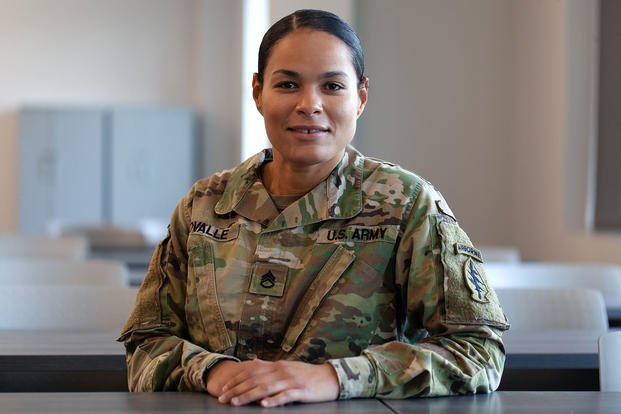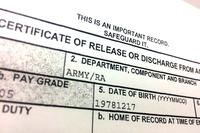The ASVAB Career Exploration Program is designed to help you explore the "world of work" and find out about yourself. This program will help you identify and explore occupations and develop an effective strategy to realize those goals.
Career exploration scores can help you determine your readiness for further education and training in different career areas. Knowing your academic strengths and weaknesses gives you time to work to improve them before you start a job, begin college or vocational school, or enter the military.
The Student ASVAB is only given in an institutional setting. Although you can take the ASVAB as a sophomore, you should consider taking the Student ASVAB as a junior or senior since the ASVAB gives you a snapshot of your current knowledge and skills. As a junior or senior, you have had more life experience and education. Besides, if you are interested in the military, your scores are only good for enlistment during the last two years of school.
This exceptional program is free, and you receive the following career tools:
- ASVAB summary test results -- show how well you did in relation to others who took the test.
- Exploring Careers -- the ASVAB Workbook.
- Find Your Interests (FYI) -- an interest inventory that helps identify your work-related interests by choosing your likes and dislikes.
- "OCCU-Find" -- explores more than 400 occupations, using information you learned about your skills and interests from taking the ASVAB test and FYI.
- The Armed Forces Qualification Test (AFQT) score -- use this score to enter into any one of the military services.
- Various career planning tools.
- Military careers -- a list of nearly 140 military occupations in the military services.
After you take the student ASVAB, your ASVAB summary results sheet will be sent to your school counselor. Your test scores will not affect your school grades. Your ASVAB summary results sheet includes three career exploration scores, eight individual subtests (referred to as power tests) and your military entrance score (AFQT).
When you receive your ASVAB summary results, you also will receive three career exploration scores. You can use your career exploration scores to evaluate your knowledge and skills in three general areas: verbal, math, and science and technical. Your ASVAB test scores will help you gather information about your specific skill areas. With the combined use of your test scores, you now have a snapshot of your current knowledge and skills.
Career Exploration Scores
The three composite scores that help you explore a variety of educational and career options are listed as follows.
- Verbal skills: word knowledge and paragraph comprehension
- Math skills: arithmetic reasoning and math knowledge
- Science and technical skills: general science, electronics information and mechanical comprehension
The Combination Of Test Scores
For purposes of career planning, it is important to know your relative standing in your comparison groups. Being male or female does not limit your career or educational choices, but there are differences in how males and females score in some areas.
Let's say you are a female senior in high school. Your percentile test scores are compared to other senior females, senior males, and both senior males and females. For instance, take your score in mechanical comprehension. Compared to other females, you may have a high score -- say 86 -- but when your score is compared to males, the score is now 56. Why is that? As a rule, most males score higher in mechanical comprehension than females; mechanics is traditionally a male occupation. You are being compared to males who actually are performing the jobs as mechanics. Your competition in the workforce are mostly males.
Although times are changing, jobs such as auto mechanics traditionally are performed by males. In order to see how you would perform as an auto mechanic (a nontraditional occupation for females), it is important to see how you would compare with individuals who are performing the job (in this case, mostly males). It does not give you any advantage to see your score compared to females in this case; they are not your competition. Your combined test score (both males and females) is helpful if you wish to go to college. Your competition in college is both males and females.
Getting Your Test Results
About two weeks after the exam, you will receive your test scores (ASVAB summary results sheet) and a copy of Exploring Careers: The ASVAB Career Exploration Guide. This career guide will help you understand and use your ASVAB scores for career exploration, identify your interests and begin to understand how they relate to career-decision making.
Included in your Exploring Careers workbook is an interest inventory (Find Your Interest? FYI). Knowing your interests can help you determine career fields or occupations that are more satisfying. Chances are, you won't stay in a job for long that does not satisfy your interests.
Your counselor also is provided a book called Military Careers, which provides a summary of descriptions of selected enlisted and officer occupations across all services -- Army, Navy, Air Force, Marine Corps and Coast Guard. It also helps you gain interest and an understanding of military training and occupations. It also describes the relationships between military career occupational fields and comparable civilian occupational areas. It includes information on life in the military in general and each service in particular.
Putting It All Together
Once you have reviewed your ASVAB scores and identified your interests, now you can explore occupations in the world of work. The OCCU-Find, included with your copy of Exploring Careers, allows you to use the information you learned about your skills and interests from taking the ASVAB test and the FYI to help you explore more than 400 occupations. The OCCU-Find is organized and color-coded by six interest codes, called RIASEC® codes, which are composed of the following interest areas: (R) realistic, (I) investigative, (A) artistic, (S) social, (E) enterprising and (C) conventional. Each interest code represents one of six interest areas that can be used to describe your likes and dislikes. Your top interest codes show your three strongest interest areas, based on how your scores compare with the scores of other high school students who have taken the FYI.
You will explore the OCCU-Find by your top three interest codes to:
Identify occupations, which are likely to satisfy your interests. You may discover careers you had not thought about before.
Find out the relative importance of your verbal, math, and science and technical skills for success in an occupation.
Explore descriptions of different occupations, tasks required, training provided, work environment, entrance requirements, etc.
The first letter of your interest code indicates your strongest interest area. The second letter is your second strongest interest. Your third interest letter is an area in which you have some interest, but not as much as your first two areas. Bear in mind that interest codes indicate your interests at this time of your life. Your top interest codes may change as you mature and gain more experience and exposure to new activities over time.
Interested in Joining the Military?
We can put you in touch with recruiters from the different military branches. Learn about the benefits of serving your country, paying for school, military career paths, and more: sign up now and hear from a recruiter near you.






